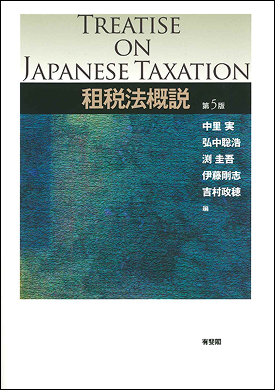-
Articles
Country-by-Country Report (CbCR): the law that Multinational Conglomerates should be aware
The Organization for Economic Cooperation and Development (OECD) and other member countries, including Thailand, have cooperated in commencing their tax procedures under the Inclusive Framework on Base Erosion and Profit Shifting (BEPS). This has been discussed since 2015 and more than 141 countries have joined※1.
Thailand signed the Multilateral Convention to implement Tax Treaty Related Measures to Prevent Base Erosion and Profit Shifting (MLI) on 9 February 2022※2. In such regard, BEPS is considered as an international problem that the revenue authorities in each country have to face due to the tax planning of multinational enterprises (MNE); who use a legal loophole in connection with the differing tax rates between each country in order to dispose their profits to the country with the lower tax rate or tax exemption. This affects the fairness of the global tax system and economy because MNEs who use the loophole will have a greatly increased competitive advantage than other companies that only operate in one country.
As a result of the signing of the Multilateral Competent Authority Agreement, each country that participates as a party must determine the measures and tools to promote the principles of good governance; in order to upgrade and increase the efficiency of preventing the disposal of profits to the country with low tax rates. Said signing also leads to the amendment of the Double Tax Agreements (DTAs) that have been entered into with many foreign countries, which will upgrade the standard of international tax evasion under the DTAs. Recently, the Thai Revenue Department has issued a measure for taxpayers who meet the specific conditions to report tax. The measure requires a company or juristic partnership of the company group or multinational juristic partnership to prepare and submit a Country-by-Country Report, which presents details of the parent company and its subsidiaries in each country to the Revenue Authority of the country in which the company or juristic partnership is domiciled.
Related laws and regulations are as follows:
1. Notification of the Revenue Department on income tax (No. 408) regarding the requirement of Country-by-Country Reporting dated 30 September 2021, which was announced in the Government Gazette on 17 December 2021; and
2. Notification of the Ministry of Finance on the expansion of the Country-by-Country Report submission dated 23 December 2021, which was announced in the Government Gazette on 28 February 2022.
Said related laws and regulations shall be enforced for the accounting period commencing on or after 1 January 2021.
Who has a duty to submit the Country-by-Country Report?
The companies or juristic partnerships that have the duty to submit the Country-by-Country Report are juristic persons that meet the following conditions:
1. Consolidated Group Annual Revenue of MNE:
1.1 More than Baht 28 billion; or
1.2 More than the average of Baht 28 billion, which is based on the number of accounts in the event that the accounting period is less than 12 months.
2. The following type of company or juristic partnership:
2.1 Ultimate Parent Entity (UPE)※3, established under Thai law; or
2.2 The following types of companies or juristic partnerships that operate in Thailand: (1) The UPE of the company does not have the duty to submit a Country-by-Country Report in the country or the economic zone wherein the UPE is domiciled;
(2) The UPE that is located in a country or economic zone that has an international agreement or agreements to exchange information with Thailand, or in a country with an agreement that has not yet been enforced in such accounting period;
(3) The UPE that has already submitted its Country-by-Country Report but the Thai Revenue Department has not received the data such UPE has submitted in foreign countries due to a failure in the data exchange system.
Exceptions of Country-by-Country Report submission
The company or juristic partnership in accordance with Clause 2.2 above does not have a duty to submit the Country-by-Country Report if the UPE is established under the Law of Thailand, and if UPE assigns another affiliate company to be a representative (Surrogate Parent Entity (SPE)) and said SPE submits the Country-by-Country Report, under the following conditions:
(1) The UPE has appointed an SPE to submit its Country-by-Country Report to the relevant authorities of the country or the economic zone in which the SPE is domiciled;
(2) The SPE is in the country or the economic zone with laws that require Country-by-Country Report the submission; and
(3) Countries or economic zones in which the SPE submits its Country-by-Country Report and that have an agreement to exchange data with Thailand, and the agreement is effective during the accounting period;
(4) The Revenue Department has not been notified of the data exchange system failure;
(5) The SPE has informed the representative of the authorities in the country or economic zone where they are domiciled; and
(6) The company or juristic partnership that operates in Thailand has notified the appointment of UPE representatives to the Revenue Department.
2.3 The UPE or an MNE domiciled in a foreign country or other economic zone may appoint a company or partnership that is listed in Thailand as its SPE; to submit the Country-by-Country Report to the Thai Revenue Department if it meets the following criteria:
(1) The UPE is not required to submit a Country-by-Country Report in the country or economic zone where it is domiciled;
(2) The SPE submits a letter to the Revenue Department to appoint a representative; and
(3) The SPE and UPE have the same accounting period.
Submission period
The juristic person, which is responsible for filing the Country-by-Country Report in Thailand, must submit information as required by the Revenue Department in English, such as profit or loss before paying income tax, amount of income tax, number of employees and details from the main business. However, the Ministry of Finance has announced its decision to extend the submission period according to the Notification of the Ministry of Finance on the Extension of Submission of the Country-by-Country Report dated 23 December 2021, as follows;
1. For the case of a UPE according to Clause 2.1 and an SPE which is a Thai juristic person according to Clause 2.3, the Country-by-Country Report must be submitted together with the submission of the P.N.D. 50 for the accounting period 2021 (within 150 days from the end of the accounting period). However, this has been extended by the notification of the Ministry of Finance to be within 12 months from the end of the accounting period.
2. For the case of a company or juristic partnership doing business in Thailand according to Clause 2.2, which must submit the Country-by-Country Report together with the PND 50 form, this has been extended to within 60 days from the date of receipt of a notice requesting submission of the Country-by-Country Report from the assessment officer. Therefore, as long as the company or juristic partnership conducting business in Thailand according to Clause 2.2 has not received a written letter to submit the Country-by-Country Report , or has received a written notice and submitted the Country-by-Country Report within 60 days from the date of receipt of the notice; it will considered that such company or juristic partnership has still submitted within the due date.
However, with respect to the MLI, in addition to the impact of future amendments to the law, in the process of filing the Country-by-Country Report, the Revenue Department has prescribed terms and conditions that the MNE should know and understand in detail in order to consider whether or not it is liable to submit the Country-by-Country Report and, if so, to understand the procedure of submission. Therefore, if you have a duty to submit the Country-by-Country Report , please study the law thoroughly before filing, or contact us for assistance in submitting the report in order to comply with the relevant legal requirements.
This is intended merely to provide a regulatory overview and not to be comprehensive, nor to provide legal advice. Should you have any questions on this or on other areas of taxation law, please do not hesitate to contact our tax team:
Budhima Kerdsiri (Attorney-at-Law)
Hatairat Sukprasert (Associate)
Pairaya Yangpaksi (Associate)
- What is the Inclusive Framework on BEPS? | China Tax & Investment Consultants Ltd (china-tax.net)
- https://www.oecd.org/tax/beps/lesotho-thailand-and-viet-nam-sign-landma…
- “Ultimate Parent Entity” means:
(1) A company or juristic partnership that has direct or indirect control over a company or other juristic partnership of the multinational group of companies or juristic partnerships, which causes the duty to prepare consolidated financial statements in accordance with generally accepted accounting principles of the country or economic zone in which the company or the juristic partnership is a tax resident; or is liable to prepare consolidated financial statements if the company's or juristic partnership's securities are traded on the stock exchange of the country or economic zone in which the company or juristic partnership is a tax resident or the Stock Exchange of Thailand. If such country or economic zone does not have a stock exchange, it is not regulated as such by any other companies or juristic partnerships of such transnational group companies or juristic partnerships; or
(2) A company or juristic partnership that has no control relationship according to generally accepted accounting principles certified under (1) with other companies or juristic partnerships, but the company or juristic partnership conducts business through a permanent establishment in a foreign country or other economic zone.








Budhima provides advice on tax compliance and a wide variety of tax-related work. In particular, she has extensive experience with accounting transactions and tax planning. Further, she has handled tax counseling and tax controversies and has substantial experience representing and advising individuals and major corporations in tax disputes, including filing appeal letters for tax assessments, which were assessed by the Revenue Department, the Customs Department, the Excise Department, and local tax collection agencies such as those dealing with land and building tax. In addition, she has more than 10 years of experience as a public speaker and columnist for tax magazines, focusing on tax planning and tax compliance for individuals and companies seeking to maximize their tax privileges under Board of Investment (BOI) promotion and accounting adjustments to comply with Thai tax laws.
Budhima was a columnist for the Tax Documentation Journal, the No. 1 public journal related to accounting and taxation published by Dharmniti Press Co., Ltd., and she is also the author of “Differences and similarities between accounting profit and taxable profit,” a book that has been published twice.